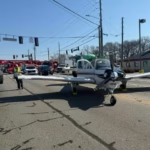A new virus is in town, and it’s giving the CDC a headache. Originating from a Delta Air Lines flight between Lagos, Nigeria, and Dallas, Texas via Atlanta, the infectious disease has made its presence felt since its arrival in the states. The deadly monkey-borne virus was last seen in America in 2003, where a total of 47 cases were recorded. The CDC continues to closely monitor the ongoing situation, with 200 Delta passengers in 27 states watching for symptoms.

Is the US facing a monkeypox epidemic?
In short, no! So far, just the seldom case has been registered. The infected patient, a Dallas resident, travelled from Lagos’ Murtala Muhammed International Airport (LOS) on July 8th, arriving at Atlanta’s Hartsfield–Jackson Atlanta International Airport (ATL) on July 9th. The infected passenger then travelled to Dallas Love Field (DAL) on the same day.
Thankfully, the CDC has confirmed that none of the Delta Air Lines passengers who have presented themselves for monitoring are considered at high risk of developing symptoms. The primary form of transmission presents itself in the form of respiratory droplets, an issue that’s mitigated by the current protocols in place to fight the COVID-19 pandemic.
It’s believed the risk of spread of monkeypox via respiratory droplets to others on the planes and in the airports is low,” – said the CDC in a statement.

Will face masks be used for international air travel post COVID-19?
If this unfortunate case of monkeypox has taught us anything, it’s that face masks prevent airborne diseases from transmitting from person to person in tight spaces. Despite how it might feel, the coronavirus isn’t the only infectious disease boarding flights in 2021. While influenza viruses are the most commonly transmitted infections on aircraft, a resurgent trend of Tuberculosis (TB) has surfaced in recent years.
Since 2020, the number of these airborne diseases acquired during air travel has plummeted. This is predominately due to the fact no one has been flying, but despite this obvious fact, data suggests the figure has fallen at a greater rate than the decline of air travel. Cautious approaches to international border crossings and increased hygiene awareness have dramatically stunted the spread of existing transmissible diseases. Now that we are learning to live with coronavirus could face masks become a part of everyday international air travel in a bid to reduce the spread of common killers?

The Dallas resident remains in hospital receiving treatment in isolation. No further cases have been announced with a low probability of community transmission. The CDC continue to monitor close and casual contacts.
Would you continue wearing face masks on planes in a post COVID-19 world? Let us know below.









